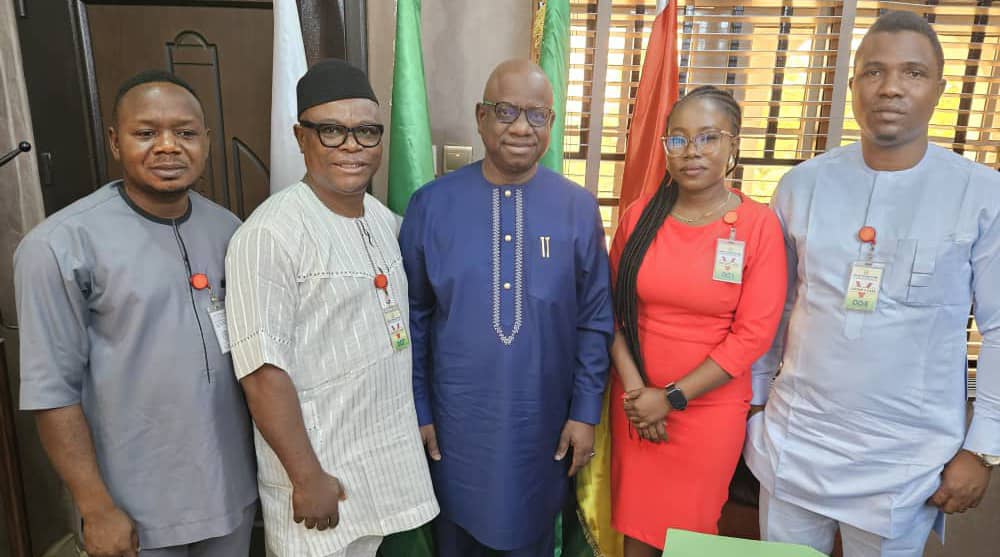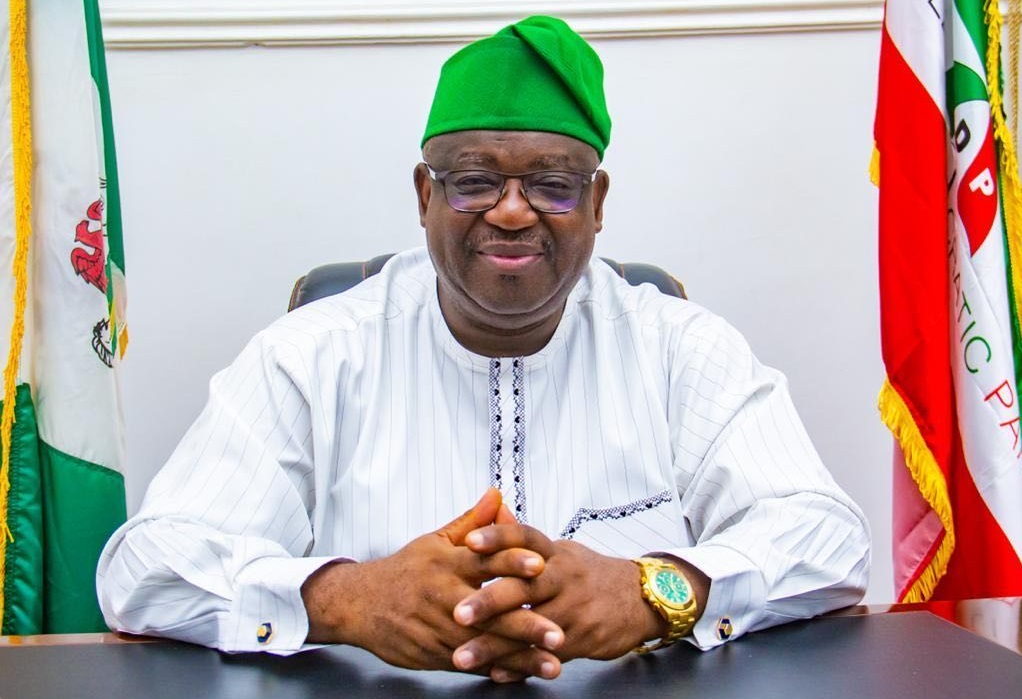News
Kidnapped Kaduna judge freed, abductors threaten: Pay N150m ransom in 3 days or we kill your children

A judge of the Upper Customary Court in Kaduna State Janet Gimba who was kidnapped by gunmen suspected to be terrorists along with her four children has regained her freedom.
Sadly, the eldest of the four children was killed by the terrorists over delay in receiving a ransom of N300 million they had demanded.
SaharaReporters gathered that the three of her children are still in the custody of the abductors.
SaharaReporters on Wednesday reported how Galadima, and her four children were abducted by gunmen on Sunday, June 23, 2024.
The victims were abducted at their residence in Mahuta, Kaduna State, North-West Nigeria.
The judge’s husband, a medical doctor, was away on duty at the time of the incident, SaharaReporters learnt.
An X user @I_Am_Ilemona said on Tuesday that the abductors were demanding a ransom of N300 million in exchange for their safe release.
“This phone call I just took broke my heart. The wife & 4 sons of a friend’s friend were kidnapped a few days ago in Kaduna. The kidnappers asked for a N300m ransom (which he doesn’t have), or they’ll kill his children.
“They killed his first son today. My heart is heavy.
“This phone call I just took broke my heart. The wife & 4 sons of a friend’s friend were kidnapped a few days ago in Kaduna. The kidnappers asked for a N300m ransom (which he doesn’t have), or they’ll kill his children.
“They killed his first son today. My heart is heavy.
“They dropped his boy’s body somewhere and told him to go get his lifeless boy. The boy was 14. They told him it’s a warning. They said they’ll kill the others. The surviving children are 12, 9 & 6,” he wrote on Tuesday.
ASP Mansir Hassan, the spokesperson for the Kaduna State Police Command, confirmed the incident to SaharaReporters on Wednesday evening, stating that the police had escalated their efforts to rescue the abducted family members.
“We are trying our best to rescue the victims,” he said.
However, the husband, Musa Gimba confirmed the judge’s release on Thursday morning, noting that the woman was released without her three children.
He explained that the bandits had reduced the ransom demanded to N150 million and that it should be paid within three days.
He said they threatened to kill his children if the money was not paid.
In an X post on Thursday morning, @I_Am_Ilemona confirmed that the ransom had been reduced by the abductors.
“Mrs Janet Gimba was released yday. However, her 3 sons – Jeremy (12), Nathan (9) & Ibrahim (6) – are still in captivity. The kidnappers have reduced their demands to N150m,” he said.
News
Guinea Woos Nigerian Investors to Join $20bn Projects

News
Nigeria’s inflation jumps to 24.23% in March 2025

Nigeria’s headline inflation rate rose to 24.23% in March 2025, according to the official government data source, the Nigeria Bureau of Statistics (NBS).
The rise in the country’s inflation rate, from 23.18% back in February 2025 to 24.23% in March 2025, reflected a major increase in the rising commodity and energy costs in the last few weeks.
According to the March 2025 Consumer Price Index (CPI) Report which measures the inflation rate released by the government agency on Tuesday, the country’s food inflation rate was 21.79% year-on-year in March 2025.
The food inflation rate, however, showed a decrease compared to the food inflation rate of 23.51% recorded in February 2025.
Economists had predicted that the country’s inflation rate which decreased minimally in February would rise when the Dangote Refinery and the state-run NNPCL got entangled in a petrol price war that culminated in the temporary termination of a naira-for crude agreement between the two oil companies and the subsequent increase in the pump price of petrol.
Some observers had also said the minimal reduction in the prices of food commodities experienced earlier in February was not sustainable, attributing the temporary decline in the prices of food to the importation intervention of the Federal Government.
Food and commodity inflation have skyrocketed as Nigerians battle what can pass for the worst cost of living crisis since the country’s independence over six decades ago, a development that economic wizards have attributed to President Bola Tinubu’s twin policies of petrol subsidy removal and unification of the forex rates.
News
Plateau 51: Mutfwang mourns, says “we failed you”, begs affected community

Governor Caleb Mutfwang of Plateau State has apologised to the people of Bassa Local Government Area (LGA) for the failure of government and security agencies to protect lives and properties.
Fifty-one persons were gunned down early Monday in the Zikke community of the LGA, with houses razed and many displaced about two weeks after a similar attack led to the killing of scores of persons in Bokkos Local Government Area.
Less than two days after the most recent assault, Governor Mutfwang apologised for the government’s inability to protect the people.
Fifty-one persons were gunned down early Monday in the Zikke community of the LGA, with houses razed and many displaced about two weeks after a similar attack led to the killing of scores of persons in Bokkos Local Government Area.
Less than two days after the most recent assault, Governor Mutfwang apologised for the government’s inability to protect the people.
The governor said this on Tuesday at the palace of the Paramount Ruler in Miango.
“I will tell you the truth: I have been crying since yesterday because I had trusted God that all the arrangements were put in place, that this will not happen again. We have made investments in security,” he said.
But like all human arrangements, sometimes they fail. I want to admit that on Sunday night into Monday morning, we failed you. Please, forgive me.”
He urged the people not to relent in their efforts to secure their communities and ensure that they complement security agencies’ efforts by providing vital information for intelligence gathering and expose the antics of the criminals.
Governor Mutfwang, in the company of security chiefs and members of the state executive council, was in Zikke community to commiserate with the people on the death of over fifty persons killed in Monday’s attacks.
The Paramount Ruler of Irigwe land, Ronku Aka, who is the Brangwe of Irigwe, urged the government to come to the aid of the communities with the provision of social amenities in the area.
The governor and the entourage also went to see some of the families who lost their loved ones in the attack. The victims have been buried just as members of the community demanded action to stem the rising wave of insecurity in the state.
Plateau State has been a hotbed of attacks, but the renewed spate of attacks adds a fresh layer of twist to the decades-long crisis rocking the North-Central state.
After the most recent assaults, President Bola Tinubu ordered security agencies to fish out the masterminds, describing the attacks as condemnable.
While experts have linked the lingering Plateau crisis to farmers-herders tussle for resources, Governor Muftwang said it was sponsored and genocidal.
According to him, over 64 communities in the state have been taken over by gunmen.
-

 News16 hours ago
News16 hours agoTears, anguish as Plateau Community buries 51 killed by bandits
-

 News15 hours ago
News15 hours agoSHOCKING! One month after giving birth, woman discovers another baby in her womb
-

 News13 hours ago
News13 hours agoCBEX: 60 fraudulent Ponzi scheme operators to avoid in Nigeria
-

 News15 hours ago
News15 hours agoAngry investors raid CBEX office, loot assets in Ibadan after digital Platform crash
-

 News22 hours ago
News22 hours agoPeter Obi speaks as Benue govt. blocks humanitarian visit
-

 News22 hours ago
News22 hours agoFUOYE VC suspended over sexual harassment allegations
-

 Politics15 hours ago
Politics15 hours agoIgbo Youths Set To Mobilize 5 Million Man-March In Support Of Tinubu, Kalu
-

 News15 hours ago
News15 hours ago‘Not something I’d wish on anyone’ — Melinda Gates opens up on divorce






